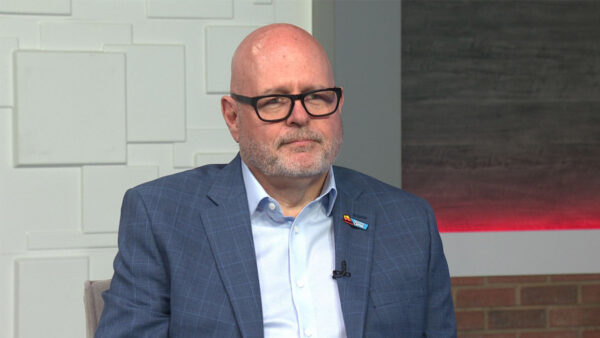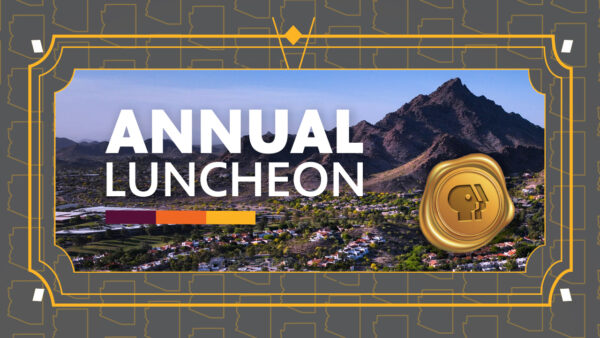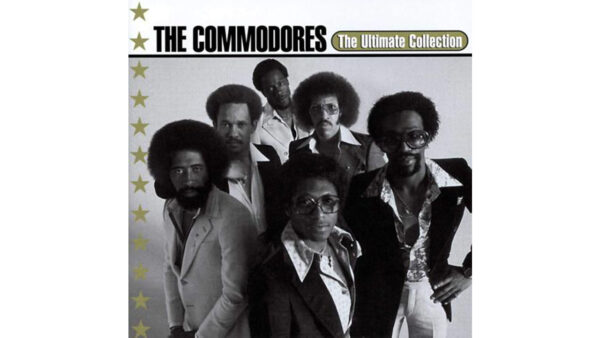The Arizona Hispanic Chamber of Commerce and The Green Chamber: Greater Phoenix are coming together to challenge the myth that Hispanics are not environmentally conscious. Arizona Hispanic Chamber of Commerce Director of Member Services Natalia Ronceria Ceballos and Michael Grossman, chairman for The Green Chamber: Greater Phoenix, discuss the partnership.
José Cárdenas: The Arizona Hispanic Chamber of Commerce and the Green Chamber for Greater Phoenix are teaming up to challenge the myth that Hispanics are not environmentally conscious. Here to talk about this is Natalia Ronceria Ceballos, Director of Member Services for the Arizona Hispanic Chamber of Commerce. And Michael Grossman, Chairman for the Green Chamber for Greater Phoenix. Thank you both for joining us on "Horizonte." Just a few words about The Green Chamber. How it came to be and what its focus is.
Michael Grossman: Sure. We have the wisdom, our found had the wisdom to start the organization just as Lehman Brothers and the financial word was crashing. We are actually celebrating our fifth anniversary this month. Our mission is to advance a sustainable economy. We do that through networking with others. We do that through promoting green businesses. We do that through discovering new green businesses and we also advocate for green businesses. We collectively try to build a community both to teach people how to operate more sustainably as well as to cheer lead those that are already creating the green businesses of the future.
José Cárdenas: And sustainability is the key. When we spoke a little bit off-camera, you pointed out it's not just being environmental conscious. It's sustainability.
Michael Grossman: Sure. Those two things while analogous aren't exactly the same thing. When we talk about sustainability, it can mean many different things, including the culture of reuse which we'll be talking about a little bit more. That happens to be also good for the planet but they mean slightly different things.
José Cárdenas: Now Natalia, you were concerned about this issue, even before you joined the Hispanic chamber of commerce. Give us some sense of your background.
Natalia Ronceria Ceballos: Absolutely. Well, my background is not in sustainability initiatives or issues, though that said, I saw it just as a citizen of our state and of our nation that this was a topic that is not just a trend. This is something that really is relevant and important for all businesses to have on the table and be discussing. That led me to get involved with The Green Chamber and as a way to educate myself but also to show that this isn't just a niche group. This isn't just that you have to be sustainability professional or that is your track to have this as a consideration. This is something that everyone be considering.
José Cárdenas: And everyone includes the members that you're responsible for as director of membership services. Now what kind of reaction, I know we're going to talk a little bit about the networking event that's coming up but to date, what kind of reaction have you gotten from members of the Hispanic Chamber of Commerce to the notion that they need to be environmentally conscious or sustainability conscious?
Natalia Ronceria Ceballos: Well, we haven't done any sort of blanket survey or anything that I can directly say this is what our member base is responding to. But that said, everybody that I've been able to dialogue with to date and that we've had discussions with have been very open to it and have actually said now's the time, this is exactly the right time to be collaborating and to actually be exposing our member base more to the concept of sustainability and how that affects business.
José Cárdenas: Now, we talked in the intro about the myth that Hispanic-owned businesses maybe aren't as concerned about these issues. Even before though the two of you kind of put your heads together to talk about this relationship between the two chambers. There was some research that went a long way towards dispelling that myth. Tell us about that.
Natalia Ronceria Ceballos: Absolutely. Just since we had spoken about earlier, it is very interesting that there's this perceived myth that Hispanics, Latinos, that the population are not invested or concerned with issues around sustainability or even conservation. But, in fact, the statistics show a very opposite story to be true. And Simmons did this study back in 2011 so now, it's already a couple of years old, and it shows that Latinos, even Spanish-dominant households over-index. They are 52%; they over-index where they say having others perceive them as being environmentally conscious is something that is important to them. They over-index on choosing products that are advertised as being more sustainable or green if you want to call it that. So it's actually something that the culture we believe that the Hispanic Chamber we're seeing that the overarching Hispanic culture is actually predisposed to sustainability and conservation, even if it's not something that has been defined in that way in the past. It's just been part of the culture. But now that we're picking it out, we're seeing these are issues that we are aware of.
José Cárdenas: And Michael when Natalia talks about over-indexing, it's against the population at large and even as against English-speaking, dominant-speaking Hispanic households. Does that come as a surprise to you?
Michael Grossman: It shouldn't because --
José Cárdenas: I think it does to most people.
Michael Grossman: It does to most people but if you think about it, Latino culture which is intertwined with the Catholic Church, one of the tenets of the book of teachings is stewardship. So the fact that there is -- that the numbers came out the way they did probably shouldn't be surprising but there is a perception that sustainability is something only for overeducated rich Anglos and that's been a problem that we've been trying to overcome, not just our organization but anybody who's working, whether it be anything from renewable energy to just operating more sustainably has the misperception that this means that green or sustainability is more expensive and it's an elitist philosophy.
José Cárdenas: In part because of the perceived cost of sustainability. So you have countries around the world who say it's easy for you the United States to say this, but when you were where we are at, you were doing the same thing in terms of coal mining and everything else, and I think people just assume that with Hispanic-owned businesses and if they're Spanish-dominant, people assume they're recent immigrants and that they might have that same attitude that this may be all well and good but I've got to make money.
Natalia Ronceria Ceballos: And that's very true. What we are tasked with right now is to help the community understand, though, that while there are these very large initiatives that a business or a home can take to become sustainable, that actions funnel down to the small details in life and that's why we have this theme this month, the chambers of -- the theme of our event is culture of reuse. Why? Because even in the poorest of nations, what are we accustomed to? We reuse our bottles, the packaging that we get something in, all of that is actually a form of recycling. It's reusing objects and it's actually one of the highest forms I would say of recycling if you look at the world right now. So again I think there's a lot --
José Cárdenas: So we have something to learn from the rest of the world.
Natalia Ronceria Ceballos: Absolutely and also how we define sustainability and that it isn't exactly what Michael is saying, it's not something that you need a huge pocketbook to buy into, that this is something at all levels.
Michael Grossman: Let's talk about the event itself. Michael, what's coming up?
We are celebrating as part of our fifth anniversary one of our first events of the year is going to be an outreach event collaboration with the Hispanic Chamber for our November green drinks on November 5th at the FireSky Resort in Scottsdale. It's a chance for these two great organizations, one that has a rich history in the valley and one that is a bit of an upstart if you don't mind me saying so to get together and talk about these kind of issues that actually bring us together.
José Cárdenas: And what will be the format of the event? Usually, they're considered mixers and people exchange business cards and have a few drinks but this is going to have an educational component?
Michael Grossman: We do, because we are able to bring to bear so many folks who are so richly steeped in sustainability. We're able to bring both speakers as well as folks who write articulately on the topic and we are able to not just share thoughts on that particular evening but throughout the entire month is devoted to this culture of sustainability theme.
José Cárdenas: Natalia, how can people get involved? What are you doing to promote the event?
Natalia Ronceria Ceballos: Well, an array actually of sites. You can go on either organization's website to get more information. Also, to register as well. For members of either organization, it is a free event. Otherwise, it's only $10 for nonmembers to come and join and see what both organizations are about if you're curious in finding out more. Facebook, of course. We use all of the social media avenues that others use. Please reach out to us I would say. Reach out to the Green Chamber. Reach out to the Hispanic Chamber. If you're a member of either and want to know more about the counterpart and how it can benefit your business, we're here to help answer those questions. If you have never heard about either chamber and want to learn more, this is a perfect opportunity to come and have that happen. I think this is just the beginning of a really worthwhile relationship and hopeful you'll see a lot more collaboration in the future.
José Cárdenas: Michael, Natalia says just the beginning. Where do you go from here?
Michael Grossman: To use the Humphrey Bogart, it's the beginning of a beautiful friendship.
José Cárdenas: I get it. Well I remember how the movie ends. They split up. No, that's not right. I've got to watch the movies more often.
Michael Grossman: It's our hope to encourage members who are our members to join the Hispanic Chamber of Commerce as well as vice versa. One of the nice things about both of these organizations is they don't simply represent a specific geographic area but rather our valley-wide. So we have members from the east valley to the west valley as does the Hispanic Chamber, so there's an opportunity there that doesn't exist for a lot of chambers --
José Cárdenas: Well it does sound like a beautiful beginning and I'll get my movie metaphors right next time. Thank you for joining us on "Horizonte." That's our show for tonight. From all of us here at "Horizonte," I'm José Cárdenas, have a good evening.
Natalia Ronceria Ceballos:Director of Member Services, Arizona Hispanic Chamber of Commerce;Michael Grossman:Chairman, The Green Chamber: Greater Phoenix























